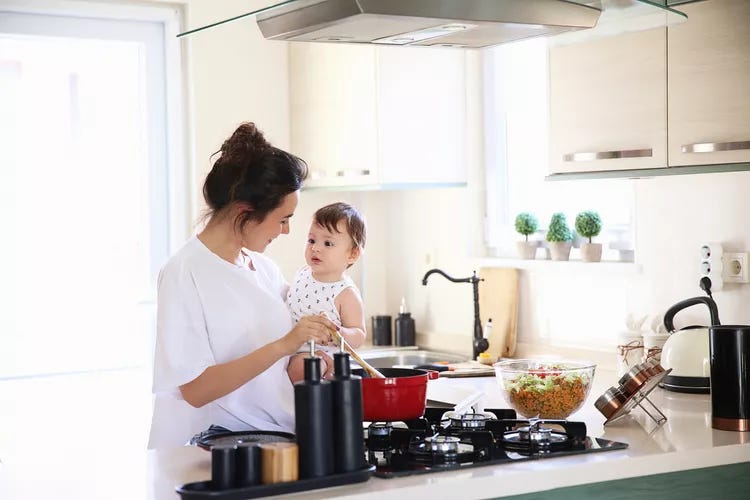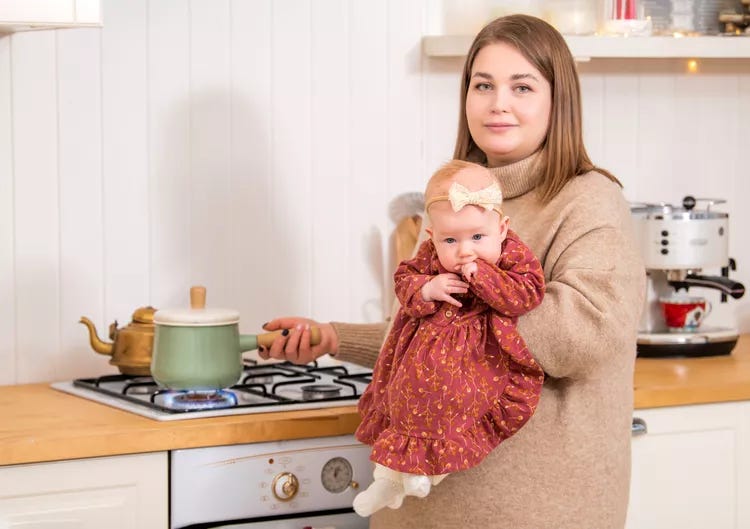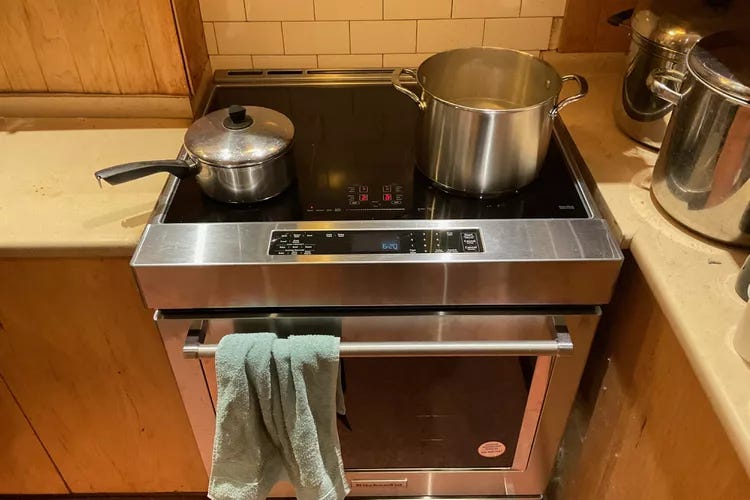I have been writing about the dangers of gas stoves for at least a decade, although most of the posts have been removed from the site because I am an architect and not a doctor, and therefore not qualified to write about health! So I am starting over with the current gas stove freakout, and couch it in fossil fuels and kitchen history. I had fun going through Getty finding stock photos of women hanging babies over gas stoves with no exhaust hoods. The first post started with Bill McGibben; that will get me by the health censors.
US Considers Gas Stove Regulations as Research Mounts on Indoor Air Pollution Risks
Here I was very careful not to put the word “ban” in the title, but that is what has blown up. The key point here is that the gas industry loves stoves because they keep people hooked up to their pipe; nobody gets emotional about their water heater. “People may not care how they get their hot water and heat, but they love their gas stoves. That's why it's so important to keep pointing out that there are good alternatives now to gas appliances and how unhealthy gas stoves are. As McKibben concludes, "If you wouldn’t smoke in your kitchen, then don’t smoke in your kitchen!"
There's No Gas Stove Ban But Regulations Can Reduce Indoor Air Pollution
More babies hanging over gas stoves, this one under a flat hood set too far away to catch anything. Here I go on about hoods and gas stoves on islands; they should both be against walls.
This is a subject we have covered exhaustively, starting with "The Most Screwed Up, Badly Designed, Inappropriately Used Appliance in Your Home: The Kitchen Exhaust." But the stove ban brouhaha has made it news again. In our post, we quoted Jill Notini, the vice president of the Association of Home Appliance Manufacturers: “Banning one type of a cooking appliance is not going to address the concerns about overall indoor air quality. We may need some behavior change, we may need [people] to turn on their hoods when cooking.”
America's Gas Stove Freak-Out Is a Culture War, Not a Scientific Disagreement
In which I quote an essay on the introduction of stoves in the early 1800s.
“"In the early 1800s many patents were granted for cook stoves, beginning the rush to develop an efficient and functional cook stove that could gain wide acceptance. But there were numerous obstacles. There was considerable angst beginning in the mid 1800s about the impact of the stove on home life. Some people believed that the disagreeable odours, bad air and smoke from stoves were harmful to health, causing headaches, giddiness and stupor. Others, mainly men, sentimentalized the open fire of the old fireplaces, believing that adopting a cook stove would ruin domestic life and social intercourse that occurred in the glow of an open fire. Others believed the energy emanating from an open fire nurtured the human spirit."
Men complaining about women not wanting to be burned to death because of open flames. “
"Women were eager to adopt the cook stove. They had long endured the hot, smoky and heavy labour of open hearth cooking and suffered 'hearth death' that up to the seventeenth century was a principal cause of death among women, second only to childbirth.”
My Family Switched to Induction Cooking and We'd Never Go Back
I will confess that it took years to convince my wife Kelly to switch to induction. She loves it now:
The induction stove heats faster than gas. With the morning oatmeal, the water is boiling before she gets the oatmeal even out of the cupboard.
The slider controls on the top are easy to use and she found them intuitive, although a lot of people prefer the more traditional knobs, which are now available on many induction ranges.
It's extremely easy to clean the top, and the pots and pans are much easier to clean as well.
The biggest surprise for her was how much more comfortable it was to cook without that open flame and the heat; it's just easier and safer.
The air is also cleaner and my air quality monitor is happier. Lots of good reasons to switch to induction.






